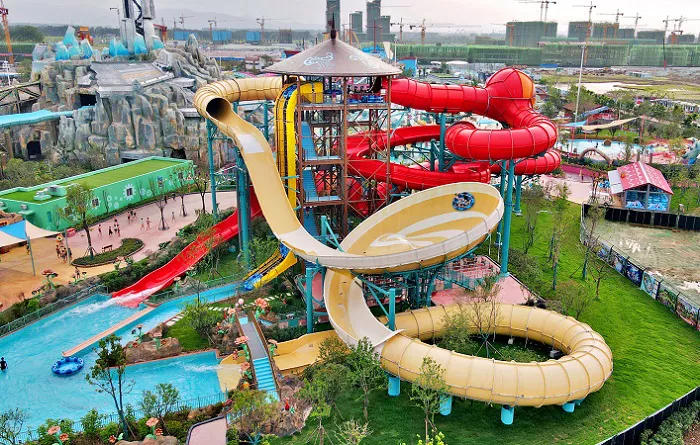China’s theme park industry is experiencing unprecedented growth, driven by soaring domestic demand and significant investments from both domestic and international players. Major global brands are increasingly integrating Chinese cultural elements into their attractions, aiming to deliver immersive experiences tailored to local families.
In 2023, the total value of China’s amusement park sector reached nearly 60 billion yuan (approximately $8.4 billion). Industry forecasts suggest that this figure will surpass 110 billion yuan by 2028, cementing China’s status as a premier destination for global theme park investment.
International operators are intensifying their presence in the Chinese market. Shanghai Disneyland, set to celebrate its tenth anniversary next year, has announced the development of its first Marvel-themed attraction and a third themed hotel. Similarly, Hong Kong Disneyland is expanding its Marvel zone and launching new Pixar-themed entertainment offerings as part of its 20th anniversary celebrations. Meanwhile, Universal Beijing Resort is progressing with the second phase of development following its 2021 debut.
Shanghai continues to serve as a strategic gateway for international companies entering the Chinese market. The city has become a focal point for global theme park operators aiming to tap into China’s flourishing entertainment and tourism sectors. Notably, the world’s largest Peppa Pig outdoor park and the Harry Potter Studio Tour are both slated to open in Shanghai in 2027.
Preparations are also nearing completion for the highly anticipated Legoland Shanghai, set to open in July. The project marks a significant milestone for the Legoland brand in China, mirroring the success of Shanghai Disney Resort.
“As the first family-oriented theme park in the Yangtze River Delta region, we’re confident this will enhance tourism and generate greater interest in Shanghai, particularly in the Jinshan District,” said Siegfried Boerst, Managing Director of Legoland Resorts in China.
In addition to the Shanghai project, the company is constructing another resort in Shenzhen. The design aims to deliver a culturally resonant experience for Chinese families by blending international play concepts with Chinese traditions and industrial knowledge.
“Children around the world play in very similar ways, but we aim to integrate Chinese culture and values into the design and production of Legoland resorts in China,” Boerst added.
As China continues to promote integrated cultural tourism, theme parks are emerging as key drivers of urban development, innovation, and family-centered economic activity. The industry is expected to grow at a compound annual growth rate of 7.2 percent over the next five years, with many cities striving to position their parks as landmark attractions.
By October 2023, a total of 358 theme parks were operational across mainland China, including 87 large or super-sized facilities, each backed by investments exceeding 1.5 billion yuan (over $200 million).


